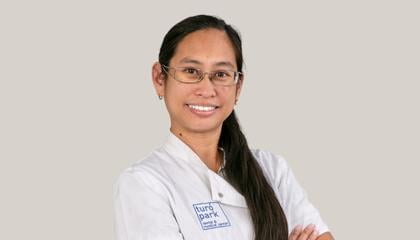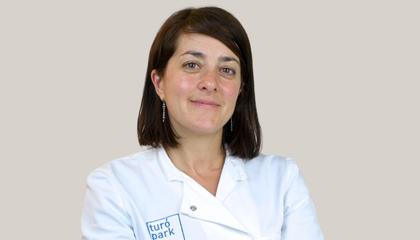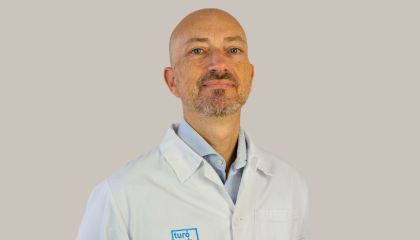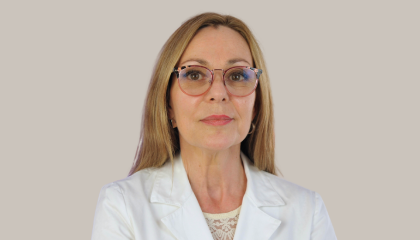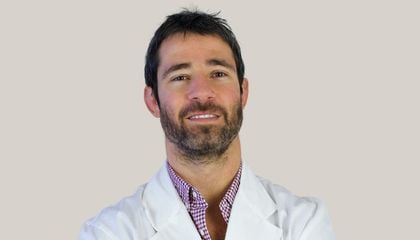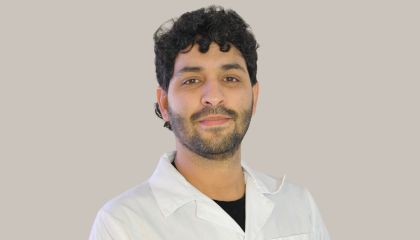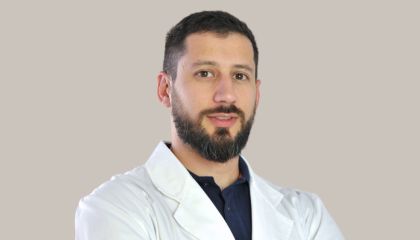Find solutions to your regular or chronic headaches with English-speaking general specialists in Barcelona
Headaches are one of the most common disorders of the nervous system. It is estimated that between half and three quarters of adults aged between 18 and 65 worldwide have experienced this symptom in the past year.
Headaches vary in severity and duration and can be accompanied by other symptoms, often making them particularly disabling in everyday life.
If you suffer from headaches on a regular basis, do not hesitate to make an appointment with one of our English-speaking doctors to find a solution adapted to your needs.
Fast track your treatment
To book an appointment or speak with one of our friendly team, please get in touch using the options below.

What is a headache?
A headache is a localized pain in the cranial region.
There are different types of headaches depending on the exact location of the pain, its duration and other accompanying signs (nausea, vision problems, etc).
What are the different types of headaches?
These are the most common type of headache. They are usually mild to moderate and cause pain around the head (a feeling like being caught in a vice), sometimes appearing also into the neck.
Symptoms of tension headaches include:
- A feeling of pressure in the head
- Pain that usually starts in the forehead or neck and then spreads
- They are not accompanied by dizziness or nausea
- Constant, non-pulsating pain
Most of the time, tension headaches do not last more than a few hours, but it is very variable according to the individual.
- Nausea
- Vomiting
- Dizziness
- Photophobia
Horton's headaches are headaches related to Horton's disease. It is a chronic disease caused by inflammation of the temporal arteries and occurs in the elderly.
It is characterized by headaches mainly at night and in the morning, abnormal scalp sensitivity, fatigue, etc. and biological signs of inflammation when blood is drawn.
Cervicogenic headaches are rare migraine-like pains caused by a pathology of the cervical spine. They are chronic headaches.
- Excessive consumption of painkillers in the case of migraine
- Chronic lead poisoning or lead poisoning
- Chronic carbon monoxide poisoning, most often due to defective combustion heating
- Heavy alcohol consumption
Headaches: what treatment is needed?
To be able to provide appropriate treatment, it is very important to understand the triggering factors, the type of pain (its location, intensity, duration and frequency) and the presence of other associated disorders.
Therefore, the patient interview prior to diagnosis must be very precise. The examination will be comprehensive and in particular look for signs related to neurological and ENT problems.
Certain complementary examinations may also be useful, in particular:
- Fundus of the eye
- Electroencephalogram
- Blood cell count
- Sedimentation rate
- Sometimes CT scan (or even MRI) or lumbar puncture (to rule out meningitis or meningeal haemorrhage, vital emergencies to be treated as quickly as possible).
What are the treatments for headaches?
The best treatment of headaches is to treat the cause, where possible.
There are also several treatments to relieve the pain, including:
- Taking painkillers (paracetamol in particular) or triptans in the case of migraine.
- Rest in a quiet, dark room.
- Massaging the back of the neck and the temples.
- Peppermint or lavender inhalations.
- Ginger tea.
Alternative medicine and natural alternatives have also found a place in the treatment of headaches in recent years. Osteopathy can be very helpful when the headache is related to cervical displacement or contractures.
How to avoid headaches?
Headaches can be encouraged by certain factors (lack of sleep, overwork, food, coffee, noise, screens, smells, etc). You should focus on these factors and try to avoid the behaviours or situations that trigger your headaches.
In general, we advise you to:
- Reduce the time spent in front of screens (computer, telephone, television, etc.)
- Get regular physical activity
- Try to reduce sources of stress
- Get enough sleep
- Avoid foods that cause headaches: chocolate, alcohol, cheese, acidic fruit, ice cream, etc
Your health is our priority.
Our English-speaking general practitioners welcome you for the diagnosis and treatment of all your health problems.

Our English-speaking doctors

